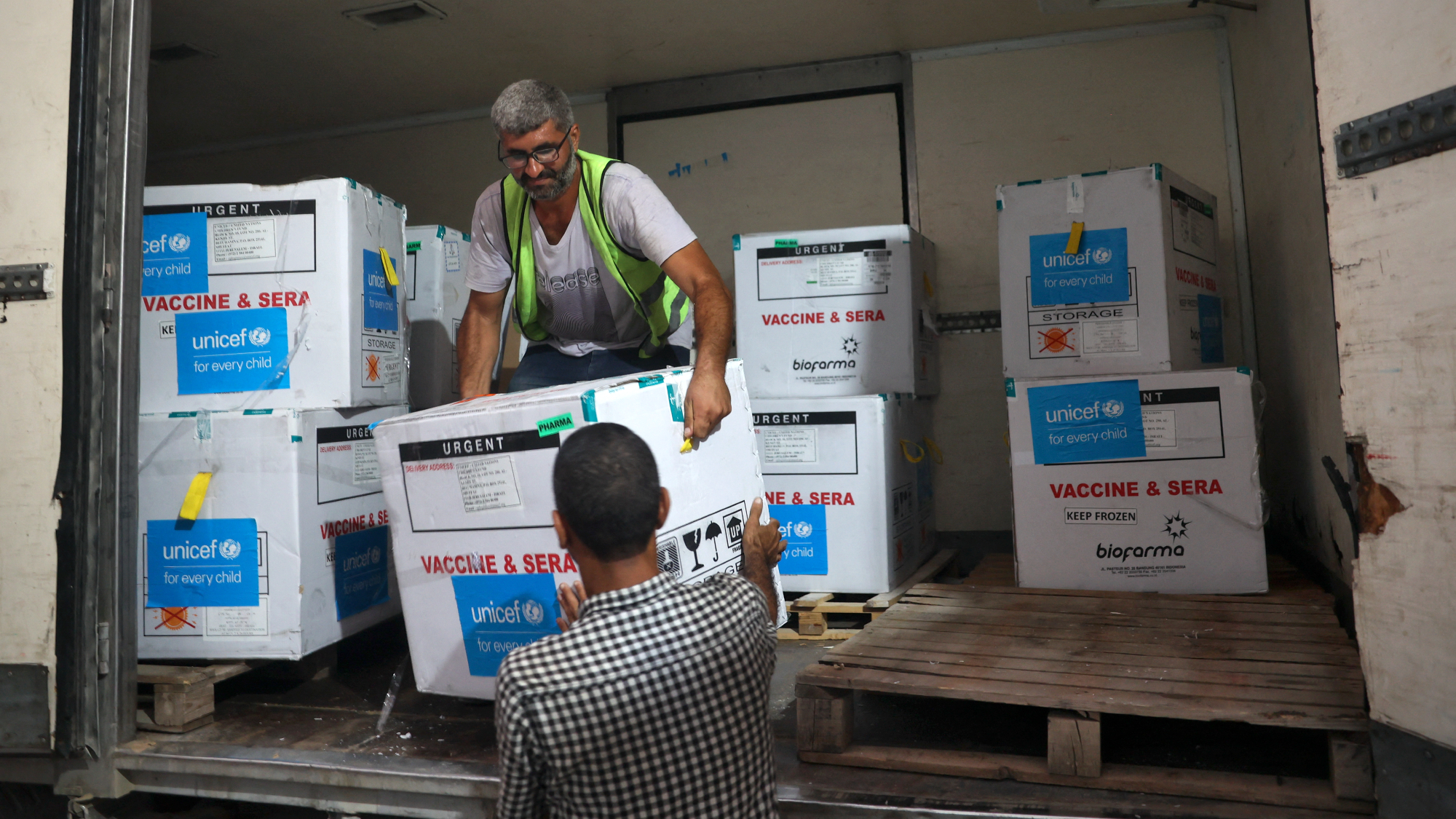Israel, UN agree to Gaza pauses for polio vaccinations
Gaza's first case of polio in 25 years was confirmed last week in a 10-month-old boy who is now partially paralyzed


A free daily email with the biggest news stories of the day – and the best features from TheWeek.com
You are now subscribed
Your newsletter sign-up was successful
What happened
Israel has agreed to a series of staggered "humanitarian pauses" in Gaza to allow United Nations workers to administer polio vaccines to about 640,000 Palestinian children 9 and under, World Health Organization (WHO) official Rik Peeperkorn said yesterday. The first three-day pause in fighting is scheduled to begin this weekend in central Gaza.
Who said what
Gaza's first case of polio in 25 years was confirmed last week in a 10-month-old boy who is now partially paralyzed. The infant "was born during wartime and never vaccinated," WHO Deputy Director Michael Ryan said Thursday. Poliovirus was discovered in Gaza wastewater in July. Israel's military said that month it had started vaccinating its soldiers against polio, the BBC said. The Israeli government initially balked at pausing the fighting to allow vaccinating Gaza's children, The New York Times said, but U.S. Secretary of State Antony Blinken emphasized during a visit there last week that "without the vaccinations, the poliovirus now spreading in Gaza could expand throughout the region, including to Israel itself."
"I'm not going to say this is the ideal way forward, but this is a workable way forward," Peeperkorn said. "Not doing anything would be really bad." Hamas official Basem Naim said the militant group is "ready to cooperate with international organizations to secure this campaign." Israeli Prime Minister Benjamin Netanyahu's office said "this is not a cease-fire."
What next?
The second three-day pause is set for southern Gaza, followed by a third respite in the north. The U.N. said the required second dose of polio vaccine will be administered four weeks after the first.
The Week
Escape your echo chamber. Get the facts behind the news, plus analysis from multiple perspectives.

Sign up for The Week's Free Newsletters
From our morning news briefing to a weekly Good News Newsletter, get the best of The Week delivered directly to your inbox.
From our morning news briefing to a weekly Good News Newsletter, get the best of The Week delivered directly to your inbox.
A free daily email with the biggest news stories of the day – and the best features from TheWeek.com
Rafi Schwartz has worked as a politics writer at The Week since 2022, where he covers elections, Congress and the White House. He was previously a contributing writer with Mic focusing largely on politics, a senior writer with Splinter News, a staff writer for Fusion's news lab, and the managing editor of Heeb Magazine, a Jewish life and culture publication. Rafi's work has appeared in Rolling Stone, GOOD and The Forward, among others.
